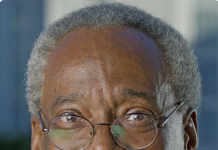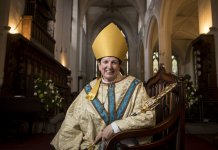The Church of England has completed a review of more than 75,000 files, some dating back to the 1940s, with the publication today of its national Past Cases Review 2 (PCR2) report.
The purpose of PCR2 was to identify both good practice and institutional failings in relation to how allegations of abuse have been handled, assess any identified risks and respond to these where appropriate, and to provide recommendations to the Church that will lead to improvements in its safeguarding work.
PCR2, believed to be the most extensive file review undertaken by the Church, was commissioned after an independent scrutiny team concluded that the original Past Cases Review (PCR) in 2007 was not a thorough process with particular criticism of lack of survivor engagement. PCR2 was carried out by independent reviewers across all 42 dioceses, as well as Lambeth and Bishopthorpe Palaces and the National Safeguarding Team (NST).
Finding support
If you or anyone you are in contact with are affected by the publication of this report and want to talk to someone independently please call the Safe Spaces helpline on 0300 303 1056 or visit www.safespacesenglandandwales.org.uk
Alternatively, you may wish to contact the diocesan safeguarding team in your area or the National Safeguarding Team – email safeguarding@churchofengland.org
There are also other support services available.
The review has found 383 new cases which are now all being actively managed by local safeguarding leads under the House of Bishops guidance. These are cases that were identified by independent reviewers as requiring further assessment by today’s safeguarding standards and, where necessary, further action.
These cover a range of cases, from those resulting in referrals to statutory authorities, to failures to carry out best practice. Reviewers found allegations were often dealt with informally, without appropriate investigations or records or referrals to the appropriate diocesan safeguarding professionals
The independent reviewers found that of the 383 new cases 168 related to children, 149 to vulnerable adults, with 27 recorded as both and 39 with no recorded data.
Data on the alleged perpetrators shows 242 cases related to clergy, with 53 relating to church officers and 41 relating to volunteers whose role included engagement with children.
The report lists 26 national recommendations, developed from the 800 plus recommendations in the 45 local reports. These have been set out thematically and are prioritised under three headings: “Keep doing well”, “Continue to do, but more effectively and consistently”, and “Must improve”.
A survivor and victim centred approach was adopted with the guidance for reviewers compiled from trauma-informed safeguarding practitioners and feedback, both positive and negative, from those previously raising concerns and complaints about their abuse allegations.
The recommendations include a charter to ensure the voices of children are heard and for the NST to develop a charter to set out the minimum standards of service and timescales that should be delivered following a safeguarding disclosure or referral.
An overarching area for improvement was more consistency across the Church’s safeguarding work.
The National Safeguarding Steering Group has accepted the report and is committed to implementing the recommendations. Dioceses, both Lambeth and Bishopthorpe Palaces and the National Safeguarding Team are publishing their own report summaries and actions.
In a foreword, the Archbishops of Canterbury and York said:
“It is always with great sadness and profound shame that we, again and again, come face-to-face with the brokenness and failings of our church in its day-to-day interactions and in its processes and leadership.
“There are no possible excuses, no rationalisations for our church’s failure to share the love of God and value each and every person.
“PCR2 was our next step in extending our search for the truth and being satisfied that past abuses and the misery suffered by survivors, victims and their families was uncovered. As a matter of priority, we took immediate action to manage concerns with procedures in place to best support the needs of the victim. This was the very least that children and vulnerable adults who have experienced such abuse deserved and was at the heart of our approach.
“Our aspiration is for a church where children, young people and the vulnerable can worship, learn, socialise and develop in a safe and caring environment, with the knowledge they have a voice and can confidently raise concerns.
“We sincerely apologise for our failures and want to reach out to those who are still suffering from the pain and misery they endured. We extend this apology to wider family members affected from this past abuse. We are so sorry that this ever happened. It was not your fault and you are not to blame. We should have been better at listening and responding to survivors’ and victims’ concerns. Our faith compels us to take safeguarding with the utmost seriousness; to prevent abuse from occurring; responding appropriately where it has in support of our undertaking to making church communities and institutions safer places.
“We want to extend our thanks to all those who have been involved in the PCR2 process. It has been a huge undertaking throughout the Church – in parishes, chaplaincies, religious communities and theological colleges. It has taken many people in many different places to be able to do this, safeguarding advisers, administrative support staff, National Safeguarding Team, safeguarding professionals, drafters, diocesan staff, clergy and lay people, the National Safeguarding Steering Group and Project Management Board, and the Church Commissioners who made funding available. But most of all, thank you to all survivors and victims who trusted us with their stories and shared their experience. What you have shared is invaluable, and we hold it with gratitude, sorrow and prayer, as we commit ourselves to continue to work to make our churches safer places.”
The Church’s Lead Bishop for Safeguarding, Jonathan Gibbs, who is Bishop of Rochester, and chairs the National Safeguarding Steering Group said:
“I want to add my voice to the Archbishops’ apology for the Church’s failures, and for all who have been affected by what we have not done well enough or failed to do. We are indebted to the contributions of survivors, victims and those with a lived experience of abuse within the Church of England who come forward to speak to the PCR2 independent reviewers, acknowledging the cost to them in supporting this work.
“The evidence, particularly the case studies, shared by the independent reviewers makes harrowing reading and is a reminder that we still have much work to do. The report highlights a Church too willing to believe its own or to take matters in their own hands without consulting professionals.
“Safeguarding is everyone’s responsibility and like all institutions we must continue our development at every level to ensure this is part of our DNA, not an add-on, and to see this as a fundamental part of our Christian witness.
“I have been assured that all the new cases, whether failure to follow due process or take professional advice, or allegations of abuse that should have been referred to the statutory authorities, are all being managed.
“Working with survivors and victims is a key part of our ongoing safeguarding work and one of the national recommendations, particularly highlighted by the reviewers, is for a survivor and victims charter to ensure the voices of children are fully heard and understood.
“Our safeguarding practice has improved since the original PCR, and the report clearly sets out examples of good practice. But as a Church it is vital we continue to learn and work together as we implement the national recommendations which have all been accepted by the National Safeguarding Steering Group.”
John Bakker, an Independent member of the PCR 2 Project Board who has lived experience of abuse, added:
“I have found the PCR2 process a very positive one. As a person with lived experience of abuse (“survivor”) and as an independent advisor I have been listened to, my contribution valued, and my perspective taken seriously. My view is that the PCR2 process has been robust and has been conducted, with rigour and thoroughness.
“I believe that this national report, summing up the findings and recommendations of each diocese has real integrity and goes a very long way to correct the deficiencies of the first PCR process, and overall means that the Church will be a safer place as the recommendations continue to be implemented.
“Survivors are a rich and valuable resource who can assist the Church enormously in its endeavour to be safer. It is therefore essential that they are part of proposals regarding implementation of the recommendations. This will mean full and proper engagement, not just being consulted or asked for their views and will be essential if safeguarding within the Church is to be properly trauma-informed.
“Support, information, advice and other services must be available now that the report has been published. Some have already been put in place but survivors need assurance that further support will be available; this must be on-going and adjusted according to need and demand.
“This report will be seen by many of those who have been affected and traumatised but who were not previously aware that the report is to be published. This adds to the urgency of developing these services.
“Overall the church must demonstrate towards survivors, in tangible and living ways, its Christian values and actions.
“These include repentance, justice, compassion, caring, love, forgiveness, respect, honesty and truth. It has so often failed in many of these and as a result the abuse that many survivors have suffered has been compounded by the response (or lack of response) of the Church, both as an institution and by individuals at all levels within the church.
“I trust that this report will be received by survivors as reason for confidence that the Church has carefully addressed its past failings in terms of culture and specific cases. However only time will tell whether this is the case. And to the bishops, other church leaders, and the safeguarding teams both nationally and locally, I reiterate the message that safeguarding work is never complete, and this report must serve as the foundation for action, learning and continued improvement.”
Further information
The National Safeguarding Programme already has established workstreams with survivor and victim engagement, to deliver on the recommendations. If survivors or victims would like to support the implementation of PCR2 recommendations, please do contact the Partnerships and Engagement Lead via engage.safeguarding@churchofengland.org










